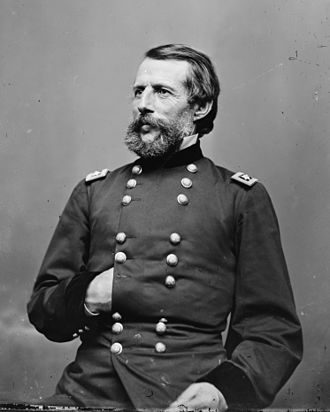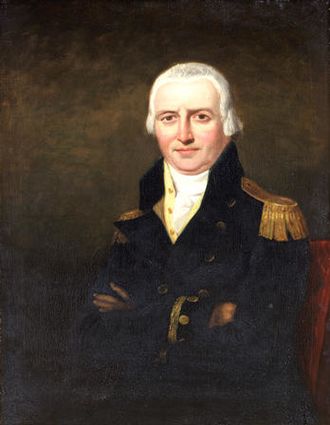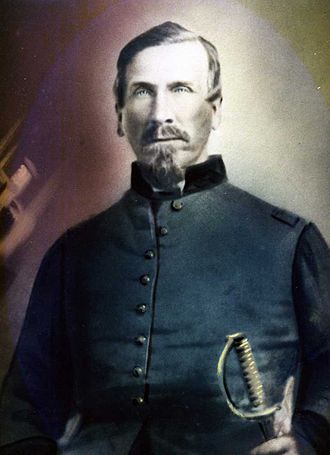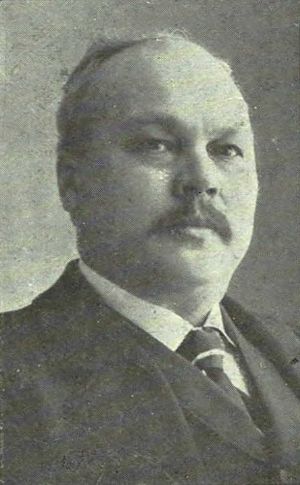Discover Your Roots
SIGN UPDiscover Your Roots
SIGN UPErasmus is a male name of Greek origin meaning "Beloved". This timeless name has been borne by various notable figures throughout history, including Erasmus of Arcadia, a Greek Orthodox bishop, Erasmus Darwin, an English physician and poet, and Erasmus James, an American football player. The name's rich history and association with accomplished individuals make it a strong and enduring choice for parents seeking a meaningful name for their son. Additionally, the name Erasmus has a shortened form, Rasmus, and is also linked to the name Elmo. With its noble meaning and distinguished namesakes, Erasmus is a name that exudes love and admiration, making it a popular and significant choice for many families.

Erasmus Darwin Keyes (May 29, 1810 – October 14, 1895) was a prominent businessman, banker, and military general, known for his leadership of the IV Corps of the Union Army of the Potomac during the first part of the American Civil War. Born in Brimfield, Massachusetts, Keyes chose a military career and graduated from the United States Military Academy in 1832. He served in various garrisons before being sent to California in 1854, where he played a role in the Puget Sound War and the Spokane – Coeur d'Alene – Paloos War. At the outbreak of the Civil War, Keyes was promoted to colonel and later became a brigadier general of volunteers. He led numerous campaigns and received commendations for his bravery. However, a disagreement during the Gettysburg Campaign led to his removal from command. Post-war, Keyes moved to San Francisco and became involved in finance. He left a lasting legacy as a dedicated military leader and a successful businessman.

Erasmus Darwin Barlow (1915 – 2005) was a British psychiatrist, physiologist, and businessman, born into a prestigious family with a lineage connected to renowned figures such as Charles Darwin. He pursued his education at Marlborough College, Trinity College, Cambridge, and University College London. Barlow made significant contributions to the fields of psychiatric medicine and physiology, publishing research papers and serving in various professional capacities, including as senior lecturer and honorary consultant in psychological medicine at St Thomas's Hospital Medical School. He also held positions as chairman and director in several organizations, leveraging his expertise and influence. Barlow's scholarly work and leadership were recognized through awards, honorary degrees, and trustee roles. His legacy continues through initiatives like the Erasmus Darwin Barlow Conservation Expeditions, established in his honor. Barlow passed away in 2005, leaving behind a lasting impact on the scientific and medical communities.

Admiral Sir Erasmus Gower (3 December 1742 – 21 June 1814) was a distinguished Welsh naval officer and colonial governor. He embarked on an illustrious naval career at the age of 13, joining the Royal Navy under the patronage of his uncle, Captain John Donkley. Throughout his service, Gower displayed remarkable courage and skill, earning promotions and serving in various regions, including the Falkland Islands, West Indies, Mediterranean, the East, and Newfoundland.Notably, in 1792, Gower led the first British diplomatic mission to imperial China aboard the HMS Lion, under the command of Lord George Macartney. Although the mission did not secure concessions from China, it provided detailed observations, marking a significant achievement. Gower's contributions to Cornwallis's Retreat and his leadership during the Spithead and Nore mutinies further exemplified his unwavering dedication to his duties.In recognition of his outstanding service, Gower was appointed as the governor and commander-in-chief of Newfoundland in 1804. Known for his meticulous administration, he was later promoted to admiral of the white before his passing in 1814. His exceptional experience and contributions have left an indelible mark on naval history.Gower's legacy lives on, with Gower Street in St. John's named in his honor. His remarkable life and achievements continue to inspire and influence the maritime realm.

Erasmus R. Burt (c. 1820 – October 26, 1861) was an American physician, politician, and soldier known for his significant contributions during the American Civil War. Born in Edgefield County, South Carolina, he rose to prominence as the State Auditor of Mississippi and later served as a member of the Mississippi House of Representatives. Burt's dedication to education led to the founding of the Mississippi Institution for the Education of the Deaf and Dumb in 1854, earning him the title "the Father of the Deaf and Dumb Institute of Mississippi." During the Civil War, he led the "Burt Rifles," which later became Company K of the 18th Mississippi Infantry Regiment. His valor and leadership were evident at the Battle of Ball's Bluff, where he was tragically killed in action. Despite his untimely death, Burt's legacy lives on through the Erasmus Burt Award presented by the Mississippi Association of the Deaf. His enduring impact on education and his service in the Confederate States Army continue to be remembered and honored.

Erasmus Haworth (1855–1932) was an esteemed American geologist known for his significant contributions to the field. After graduating from the University of Kansas, he earned a doctoral degree from Johns Hopkins University in 1888. His impactful career included serving as a professor of geology and mineralogy at the University of Kansas, where he organized the Kansas Geological Survey and played a pivotal role in identifying a substantial water supply for Wichita and Newton. Haworth’s diligent work also led to the discovery of helium in Kansas, dispelling the belief that it was rare on earth. Throughout his career, he fearlessly warned against fraudulent zinc and gold deposits, ultimately vindicating his stance. His expertise extended to writing bulletins for various geological surveys and working with the United States Geological Survey. Haworth’s legacy lives on through his namesake building, Haworth Hall, at the University of Kansas, which now houses the Division of Biological Sciences. His remarkable contributions and unwavering dedication have solidified his status as a respected figure in the field of geology.
All images displayed on this page are sourced from Wikipedia or Wikimedia Commons.We use these images under their respective Creative Commons or public domain licenses. Wherever applicable, author attributions and license information are provided. If you believe an image is used incorrectly or outside its license terms, please contact us so that we can review and correct the issue.